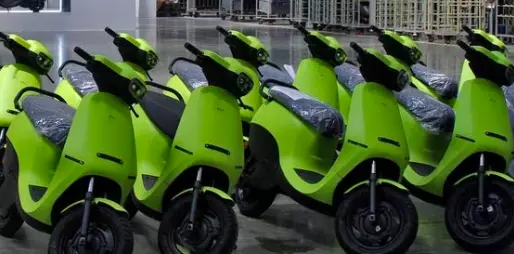EV component market to be Rs 1.5 lakh cr; Rs 25,000 cr capex expected

Chennai: The market for e-two-wheelers and e-passenger vehicle components is expected to be Rs 1.5 lakh crore by 2030. EV component makers are likely to infuse over Rs 25,000 crore capex in the next three to four years.
Indian e-two-wheeler component market potential is estimated to exceed Rs. 1 lakh crore by 2030, while the e-passenger vehicle component market is foreseen at another Rs. 50,000 crore at least, in terms of revenue potential for ancillaries, according to ICRA. The demand for EV batteries for domestic sales might go up to 15 GWh by 2025 and 60 GWh by 2030.
Spurred by subsidies, enhanced awareness, and increasing product launches, the electric vehicle segment in India has seen a significant upturn in prospects over the past two years. A confluence of factors such as improving product portfolio, charging infrastructure, and financing availability and a gradual decline in battery prices are likely to aid in the acceleration of EV penetration across segments over the medium term.
EV penetration reached 4.7 per cent in FY2024, with much of it driven by the electric two-wheeler segment, although e-three-wheelers and electric buses have also contributed to the same. At present, only around 30-40 per cent of the EV supply chain is localised. Advanced chemistry batteries, which remain the most critical and the costliest component, accounting for almost 35-40 per cent of the vehicle price, are imported. The low localisation levels give rise to manufacturing opportunities for domestic auto component suppliers.
“Battery cells are currently not manufactured in India, and thus most original equipment manufacturers (OEMs) rely on imports. Manufacturing operations in India are limited to the assembly of battery packs. To achieve mass-scale penetration of EVs and a competitive cost structure, India will need to create its own ecosystem for developing battery cells locally,” said Shamsher Dewan, Senior Vice President and Group Head of Corporate Ratings, ICRA.
“Auto ancillaries have started investing in the EV components space to capitalise on this opportunity, and companies have entered into collaborations/joint ventures (JVs) in cases of technological impediment. ICRA expects at least Rs. 25,000 crore of capex for EV components in the next three to four years, for capacity building, technology, and product enhancements. About 45-50 per cent of this would be towards battery cells,” he added.

